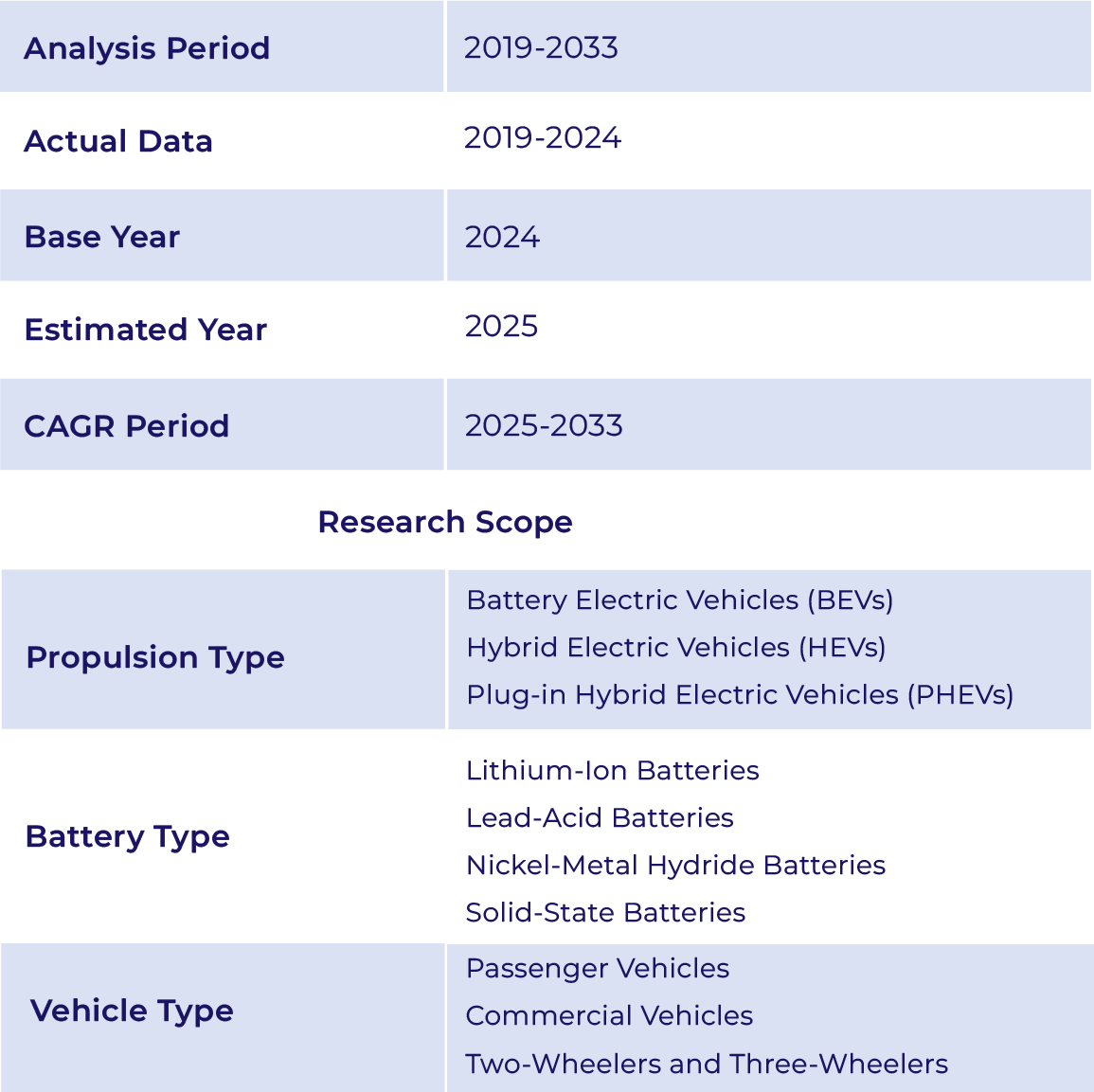Philippines Electric Vehicle Battery Market Growth and Performance
- The Philippines EV battery market witnessed substantial growth in 2024, with an annual increase of XX%, elevating its total value to US$ XX million.
- Projections indicate the market will expand at a CAGR of XX% through 2033, possibly attaining a value of US$ XX million by the end of the forecast horizon.
Philippines Electric Vehicle Battery Market Outlook
The Philippines is strategically positioning itself as a key global player in the electric vehicle (EV) battery supply chain, backed by abundant nickel reserves and a robust trade policy strategy. A recent push by the Philippine government to diversify its nickel export market beyond China, with India identified as a priority partner, underscores this shift. With India currently sourcing over $700 million in nickel from countries like Russia and Norway, the Philippines sees a trade realignment opportunity that could cement its role in supplying raw materials essential for EV battery production. Discussions around a Preferential Trade Agreement (PTA) with India have gained urgency, with the Philippines aiming to leverage its 11% global share in nickel production to access India's growing EV market. This strategy is expected to boost exports and stimulate domestic investments in refining and processing facilities. Furthermore, the government’s investor-friendly reforms, including corporate tax incentives and an e-visa system, are designed to attract international stakeholders to its burgeoning EV and battery sectors. These developments place the Philippines on track to become not just a mineral supplier, but also an integrated hub in the global EV battery value chain.
Philippines Electric Vehicle Battery Market Drivers
A major driver shaping the Philippine EV battery sector is the influx of financial and developmental support, particularly from international development banks. In January 2025, the Asian Development Bank (ADB) pledged a $100 million loan to enhance the country’s electric mobility ecosystem. This funding is targeted at building essential infrastructure such as charging networks and battery-swapping stations, alongside incentivizing localized EV and battery manufacturing. The support also aligns with the government’s Electric Vehicle Industry Development Act, which mandates EV adoption in public transport and aims to reduce fossil fuel dependence. The ADB’s initiative not only addresses technological and infrastructure gaps but also improves investor confidence in the long-term viability of the EV sector.
The financial package also covers the development of regulatory frameworks and capacity-building measures, ensuring the ecosystem's resilience. This significant international endorsement signals that the Philippines is transitioning from policy planning to concrete execution—establishing a supportive environment for domestic and foreign manufacturers to scale battery production and EV assembly. The synergy between development financing and legislative support is expected to create sustained momentum in the country’s EV battery market over the next decade.
Philippines Electric Vehicle Battery Industry Trends
One of the most promising trends in the Philippines EV battery market is the concerted push for domestic battery manufacturing capabilities. The Electric Vehicle Association of the Philippines (EVAP) has been actively advocating for large-scale investments in EV battery production to reduce reliance on imported components. With global demand for EVs and lithium-ion batteries skyrocketing, the Philippines sees a timely opportunity to integrate its mining advantage with local value addition. The country’s unique position as a major nickel producer gives it the leverage to move up the battery manufacturing value chain—from raw material supplier to component producer. EVAP's initiative includes policy lobbying for incentives that support battery manufacturing plants, including tax holidays, import duty exemptions on equipment, and public-private partnerships for technology transfers.
These efforts have also sparked interest from multinational firms eyeing Southeast Asia as an alternative to traditional battery production hubs. This movement signifies a broader shift from resource exportation to industrialization, aligning with regional trends in Indonesia and Thailand. As EVAP and other stakeholders drive this agenda, the Philippines is poised to become a competitive player in the regional EV battery manufacturing ecosystem.
Philippines Electric Vehicle Battery Industry Development
Recent strategic partnerships and industrial investments are defining the Philippines’ emergence as an EV battery production hub. In October 2024, President Marcos inaugurated the country's first electric vehicle battery plant, marking a pivotal moment in the nation's industrial landscape. The facility aims to produce lithium-ion battery packs locally, significantly reducing import dependency and accelerating adoption across public and private transport sectors. Complementing this is the announcement by POSCO, a South Korean steel and battery material giant, to co-build a nickel processing plant in the country. This collaboration not only brings in foreign expertise but also establishes a vertically integrated supply chain for battery production—linking raw nickel extraction, processing, and final battery assembly within national borders.
These initiatives reflect the Philippine government’s broader industrial strategy: to transform from an exporter of raw minerals into a value-adding manufacturing economy. The co-location of raw material sources and processing infrastructure will enhance operational efficiency, attract ancillary industries, and offer regional supply chain resilience. These developments are not isolated projects but are part of a coordinated effort to anchor the country’s role in the global EV battery ecosystem, offering long-term economic and environmental benefits.
Philippines Electric Vehicle Battery Market Scope







